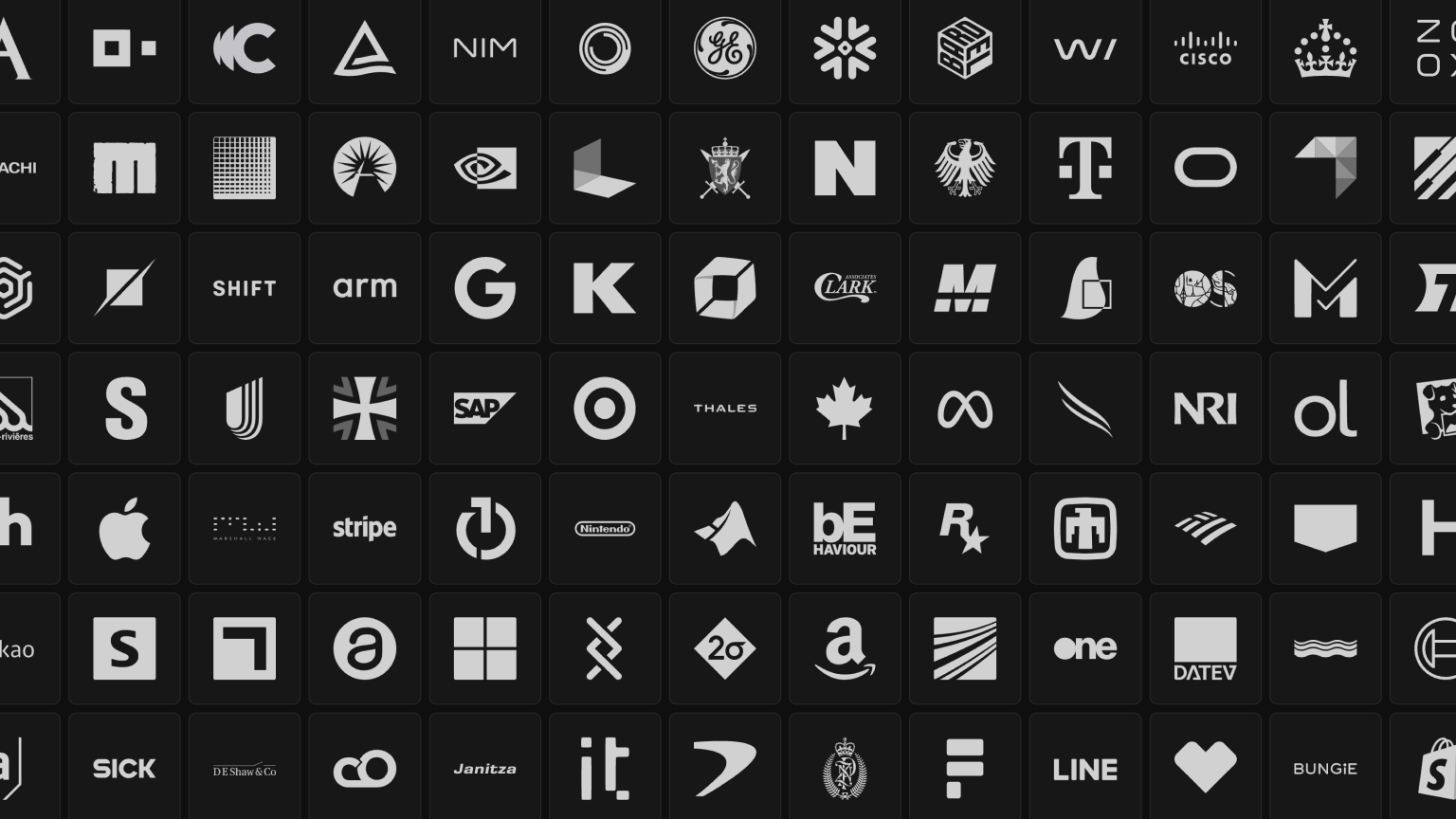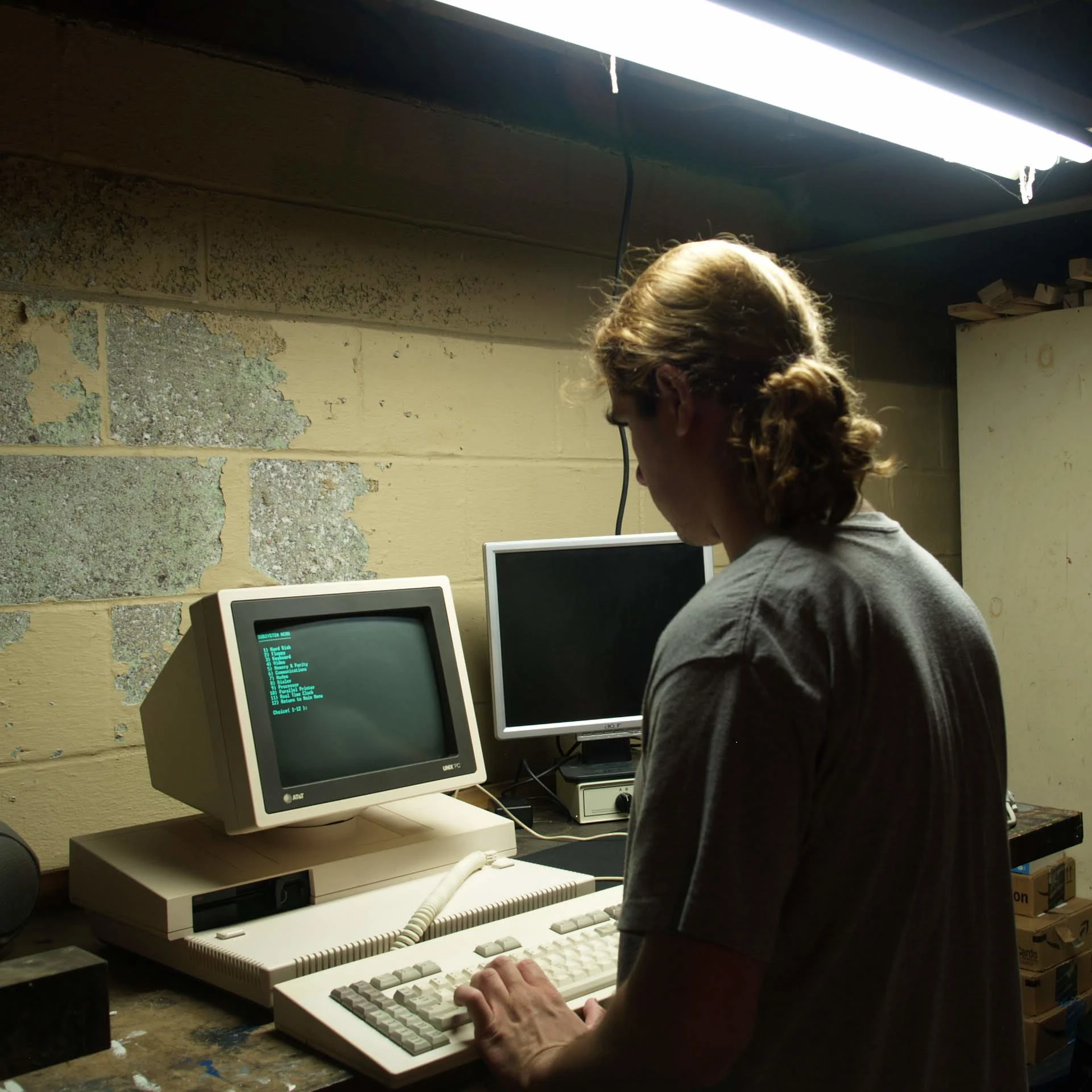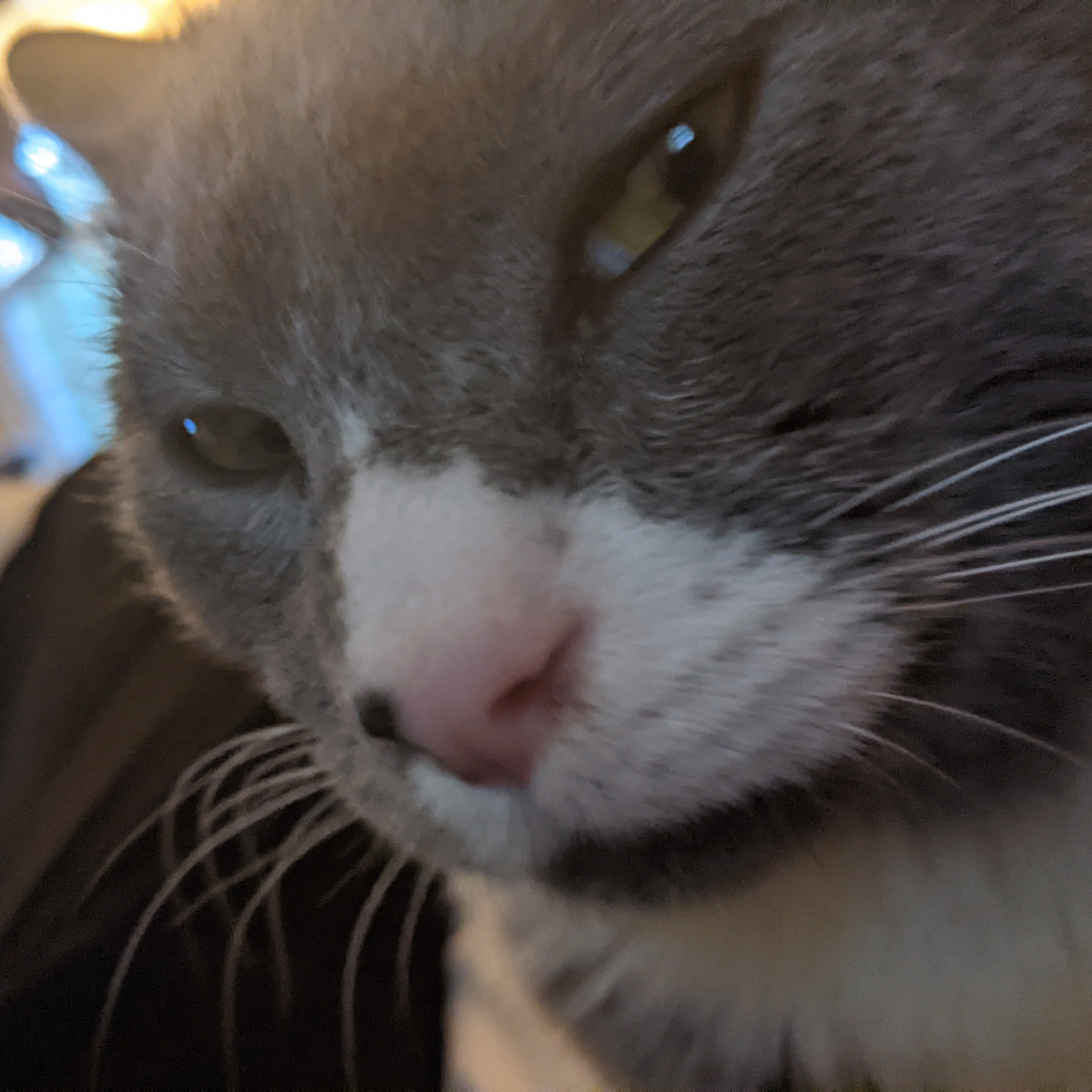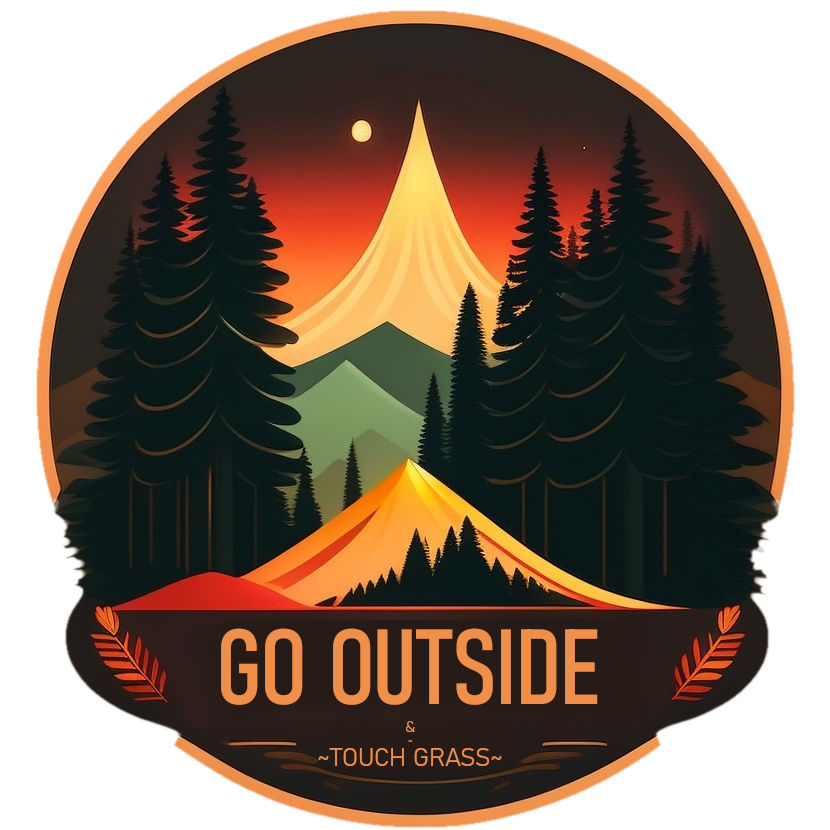Whoo, some good news. Time to ask “Central IT” for it and get ready for another six month rodeo.
I assume this means free for local use? Not any kind of backups?
Why would they donate server space to you on top of giving you free (beer) software?
The way some of you think is very odd to me.
Back up your own shit or pay for sync.
I said absolutely nothing to indicate that I felt that way so I don’t know WTF you’re on about.
I assume this means free for local use? Not any kind of backups?
Why would they donate server space to you on top of giving you free (beer) software?
That’s literally what you said… ?? Or at least that’s how it reads to me and the previous commenter.
That literally doesn’t even remotely resemble what I said.
It’s always been free for me using Mobius Sync…
Not the point here. Using it in a commercial environment for free was a violation of the terms, now it’s not anymore.
Ah got it, thanks for the clarification.
SyncThing for me, but yeah.
Yup! I should have been more specific, Mobius Sync uses syncthing on iOS.
This post was how I learned about Obsidian.
For those of you that love it, how do you use it daily?
I use it to track everything…
Quick notes knowledgebase Follow up (personal and work)
The great thing about Obsidian is how flexible it is. The bad thing about Obsidian is how flexible it is… 😀
I have seen may people comment, or outright leave, Obsidian because because there was too much to learn… or too many plugins to explore…
Personally, I only look for plugins if I need something specific. Don’t see the point of trying random plugins. Is like spending time finding solutions to a problem you may not have…
Also, I work on tech and many documents are in markdown. Obsidian makes it easier to read those. Specially the collapse / expand functionality is really great for exploring large docs… as long as the creators properly used sections (basically # for level 1, ## for level 2…and so on)
Not daily, but their canvas feature has a feature that lets you embed previews of your files into the flow charts you make. It’s pretty nice, since you can have shorter files entirely visible with everything else. Makes it pretty good for software development and project management, in my experience.
Careful not to go overboard with it, though. I feel like a lot of people fall down the “productivity pipeline” when using it, where they end up procrastinating by trying to optimize every little thing and end up doing nothing at all.
Weekly.
As a personal knowledgebase and todo list.Daily journal Task list / project management Note taking Mind mapping Resource archive
I’ve got my vault automated pretty well at this point. I honestly don’t know what I would do without it.
For those of you that are wondering, everything is markdown independent, all of my plugins address UI or vault automation processes that leave all of my information entirely portable.
I use Obsidian as a tool to help my shitty memory.
I want to have one single place where I can go search for a thing I know I saw somewhere but can’t remember where or what it was exactly
“Did I watch movie X” -> Obsidian -> Watchlist -> Movies and there it’ll be.
Same for tv-series, anime, books, games. Yes there are services that do it like Trakt, Imdb, Letterboxd, TVMaze and god knows how many for games. They all get enshittified eventually requiring you to pay for basic functionality (looking at you trakt…)
I’m building a tool for getting my data out from all those services into Obsidian markdown format, maybe It’ll get finished some day :D (IMDB and Goodreads work, but you need to do a manual csv export)
“How did I install that finicky piece of software last time” -> Obsidian, I wrote something down because I knew I couldn’t remember it. Then I’ll improve the guide + refresh with new data.
Now I have a pretty good step-by step guide on how to set up a computer, no matter the OS, just how I like it - all in Obsidian. Mostly just commands I copy-paste and some manual steps that I can’t be arsed to automate.
Same with my daily notes, I just write down what I did maybe with some tags so I can find them when I start wondering when did I visit X or put up the curtains in the bedroom.
How did I install that finicky piece of software last time
This. So much this. Every time I start a new project I’m so glad to have these notes to refer back to.
Daily notes. I have a template that prompts me to fill out a number details I might otherwise forget.
A wiki of people that helps me remember details about people I meet or have worked with. Makes it much easier to keep in touch and to remember important dates in their lives.
Sortable todo lists, with due date and urgency information. I can add to the lists directly from any other note using a Dataview formula with the Tasks extension.
Career plans. Project plans. Gardening plans. Recipes (there’s an awesome extension that imports recipes from the web).
Any random writing I might want to do, from short stories to rough drafts of letters to stream of consciousness mind spew that I want to review later.
I use the Auto Note Mover and Dataview extensions, along with backlinks and tags, to keep all of my notes organized automatically. I use the Linter extension to make sure things are formatted nicely. When I started using Obsidian, I used the Importer extension yo easily pull in all of my existing notes and lists from Evernote and Google Keep.
Honestly, that barely scratches the surface.
I use it as a work journal and personal knowledge management (PKM). Each day I open a daily journal note (built from a template with an easy shortcut) that contain rough notes on what I did that day. From that note I link over to project notes for any project I worked on or complex issues, scratch notes, etc. I do split windows, one with a narrow view of the daily note and then a larger panel for content notes (like documenting the project or create a scratch note or searching for a note on a problem I had 2 years ago that I need to remember about). There are many useful plugins but Templater and “Various Complements” are my favorite. Templater allows me to configure a template for any note I want to configure, so I can create a new note then hit a shortcut that will prompt me for a page title and auto fill the note with my template (that includes tags, headings, etc) for a meeting or new project or scratch note. Templater can also organize the note and move it around on my filesystem. Various Complements plugin allows me to build a dictionary of anything I want that will then fill in like an IDE when I’m typing in a note. So I use it for all my coworker names, I type 4 letters of someone’s name and it pops up suggestions where I can tab-complete their full name.
It’s truly a great program, better for me than all the others I’ve tried: OneNote, TiddlyWiki, DocuWiki, Dendron, and emacs. I used TiddlyWiki for years and had to bend it to my will in many wonky ways, then Obsidian came around and did 90% what I wanted out of the gate and the 3 or 4 plugins I use did the rest. I’ve been using it for a few years now.
I use it for note taking at work. I like that I can add code into markdown. But yeah post notes and paste screenshots. Useful when I want to go over my old tech notes when I’ve fixed stuff. A personal knowledge base. The fact it’s markdown I could just upload this to somewhere like GitHub and it retains it’s formatting
I fucking LOVE obsidian, one of my most used pieces of software.
I have two note vaults.
One is my personal “everything” not vault, Anything I might need to write down goes there. No random sticky notes, or half used notebooks for me. Game notes, such as what equipment I’m looking for, or solutions to puzzles I’ll forget before I can use the information. More practically useful notes like conversion charts to use imperial measurements in blender and godot. Names of people I need to remember and what their handles are on social media, because most platforms don’t help you with that. Everything can be interconnected, so some notes are just indexes of other notes.
More impressive is my lore wiki. There is a book series that I will never write, and these notes document the setting. Characters, events, locations, other authors who have helped over the years. Anything that is a proper noun or is otherwise special to the setting is a link to a note of that name.
Obsidian also has “graph view” which visually organizes notes so that things that are connected are physically closer together. I just wish I could give these notes icons on the graph view so that they’d be more visually distinct.
I use it for pretty much everything. Any random crap i need to jot down go into the daily notes with a tag of some sort, Excalidraw extension for any sort of diagrams or a string board for connecting different notes/pictures together, code snippets, documentation etc.
I dont use their sync, but I have proton drive keeping the directory backed up in case of emergencies, and I have a git repo for when i want to officially keep something tracked.
here’s a bunch of possible applications:
- simple note taking. like notepad except you have your notes at a place where you can search through them and even link one from another.
- second brain. you can watch a video about it but basically to organize your thoughts, record things you learn, make connections between things to have a digital brain you can search or browse through.
- work or school. notes, to do lists, reminders, links to sources, etc all in one place with references via links
- journal. pretty straightforward, but you can imagine things you could do if you could link from your journal entry to a website, or another entry, or something from your movie collection.
- database. eg maybe you have a movie collection and want to document all the details, including which ones you watched, which ones you liked, and what you think about them. you can have a file for each movie but also files for directors, actors, etc that you can link to and from, in which you have info on those, including images, tags for easy search.
so you watched a movie and wonder what other movies you own have the same starring actor: search movie, click link to the star page, check backlinks.
obviously not the best use case because imdb exists but this is personal and could be extrapolated to any collection you have, maybe even all of them. why not have the movie adaptation link to the original book?
TLDR
you can think about it like: imagine if you could make a bunch of wiki pages. the formatting isn’t quite as nice but essentially that’s what you’re doing. a bunch of pages with text, images, links and tags, that you can browse through. what would you use it for?
I truly is evolving with me. I’m no power user, but I’ve been using it for the last two years. Eh e I am at school it’s where I take my classes notes. When I needed to write to myself it was also there. I have it synched between my two computers and my phone. And it is where I put my documents like CV’s and Excels I share. It’s not directly Obsidian doing all of this. But basically it becomes a Hub of all I do.
Recently I started saving more pages online that are important as notes in Obsidian and still find new usage of Obsidian
it is fantastic for both lil notes and grand projects! and you can even link to those little notes and slowly evolve them into a grand projects
you can basically create a personalised Wikipedia! and Obsidian will help you with it, as it can detect when you write in plain text a word or phrase that also is another note’s title, then you just click and bam, it’s linked. And if you change a note’s title, all mentions will update too!
you can also make conspiracy boards with the canvas note type, all usual formatting works within them
it’s a great tool to keep a lot of information organised and linked together, without having to open a billion files and cross reference them (you can also open notes in split screen).
learning how to use it will only take an hour or so, and then you’ll be zooming
i’ve recently been using it to collect and organise information for a big project i’m working on, and being able to link mentions of things to bigger topics and themes as i’m doing the data collection is just wonderful, no more “(IMPORTANT LOOK HERE!!!)”
Project management
Anything I want to plan out goes into it
Cool. Available for windows, linux and iOS. I tried to use todoist, but it has some real problems syncing and arranging data. I spent hours creating a worflow only to lose more than half of it when trying to sync it across devices. I hope Obsidian will do better.
Obsidian is a note taking app. Todoist specializes in creating tasks and scheduling them. They are different tools for different jobs.
You can extend obsidian to basically do anything.
That doesn’t change the problems I had with todoist. I was using it in a note taking format, the scheduling part wasn’t really relevant to my use.
I use Obsidian between Ubuntu and IOS… Sync is a bit erratic… It always… eventually, refreshes, but have not been able to find how to force sync on IOS. Sometimes end up doing trivial changes to see if can get the sync on IOS to trigger.
Ubuntu client shows when it does sync and it does appear to do it fairly quick.
It is a really good app. But was a pain in the ass to keep the archive in sync using multiple different platforms without paying for their sync addon in my experience. You can roll your own sync with stuff like Syncthing, cloud storage, etc. But the archive had a bad habit of seemingly finding ways to get out of sync.
The biggest issue I had was with folder permissions on Android. I also ended up paying for the sync functionality and have zero regrets.
I just paid for the sync 🤷🏻♂️
It’s $4 a month, I drink one beer less a month and I actually save 3€ 😀
Oh I don’t disagree, it is worth it. I ended up paying for it myself before I switched to Joplin. I just went down a rabbit hole of realizing I technically could self host the backend and stubbornly tried to make it work well beyond what was good sense at the time. 😅
Take a look a SyncThing! It’s a free FOSS app for syncing files and is available on all devices, and it’s all self hosted. I initially used it for Obsidian syncing, but it’s proved incredibly useful beyond that
They mentioned SyncThing. 👍
I’ve had zero problems with Dropbox.
Did you try any of the sync extensions?
Read whole page. Not sure what Obsidian even is?
Note-taking app. Each note is a markdown file, so you can add formatting.
A very successful one with a large extension ecosystem to boot.
What sort of extensions would one use for a note taking app? What sort of notes to you take with it?
There’s lots of types, think even stuff like d&d monster blocks, or custom date ones
The Dataview plugin is the most critical one. You can create queries with the metadata in your notes (YAML frontmatter and # hashtags). If that sounded like a bunch of non-sense I highly encourage you to dig into it, because I had no idea what those words meant either but it took my note taking to a new level. I think of my Obsidian vault as my second brain.
Below are some cool examples of vaults that you can click through. Also note that because the obsidian pages are in markdown format you can use the Jekyll engine to directly turn them into web pages without any coding (this is how GitHub Pages works)
If you know how to do a bit of coding (or use ChatGPT) you can incorporate APIs from other apps in your obsidian vault. Maybe you want to make a fancy home page that displays all your tasks from ToDoist, alongside the RSS feeds to your favorite podcasts and YouTube channels. Maybe you are tracking your habits and using DataView to compile all relevant instances of #habit tags into one calendar for a birds eye view.
I use mermaid and git extensions personally.
Lots of AI bros add LLMs to it but that’s not my cup of tea
It’s like trillium, but not open source Here is an enthusiastic person talking about the state of the art of one year ago for 20 minute. https://youtu.be/XRpHIa-2XCE
What is a Trillium?
It’s like a Bilium, but with one more
What is Billum?
It’s like Millium, but one more.
Its a staggeringly powerful app. Utilizing the markdown format and the Dataview plugin to create queries with metadata in your notes allows you to build INSANE knowledge management systems.
Example of some set ups here: https://forum.obsidian.md/t/14-example-vaults-from-around-the-web-kepano-nick-milo-the-sweet-setup-and-more/81788
Holy shit this is huge. I can finally use obsidian at work! I was avoiding it due to the license and using Logseq. Which, to be fair, did admirably. But it’s much more and Outliner or journaling system than a knowledge base I feel.
Can you elaborate on this? I use logseq as an information dump and use tags and hashtags to associate the individual entries with a certain topic. I love that i do not have to think about the file structure (where do i have to put it?) and instead can just write it down immediately.
E.g: had a meeting with #name with regards to #project Z. We have a set of new requirements that need to be implemented in by Q3 2025….
Would this be significantly different in obsidian?
deleted by creator
Excellent news ! Excellent note taking applications with its ecosystem of extensions.
Now that it’s free, are its users the product?
Nothing else is changing. No account required, no ads, no tracking, no strings attached. Your data remains fully in your control, stored locally in plain text Markdown files. All features are available to you for free without limits.
Still closed source.
“…until we have a large enough userbase to start monetizing and enshittifying…”
At least if/when that happens all your files are in markdown, owned and controlled by you so migrating to another tool is pretty easy.
While that’s technically possible, it’s very difficult, and in my opinion, highly unlikely.
- All notes are stored in markdown, which is compatible with any other markdown-compatible app. It’s not just a note format, it’s a fire exit.
- Even the canvas files are now having an interoperable format created, with other industry-leading canvas style software, and that whole process was started by the Obsidian team voluntarily
- All plugins must be open-source unless explicitly and clearly stated, and such plugins are only listed on a case-by-case basis, which makes even additional plugin-specific functionality added to Obsidian easier to port over to other software if Obsidian ever does lock things down
- They don’t have VC investors, and have mentioned a few times that they won’t be accepting investment in the future, since they don’t exactly have very high costs. They’re explicitly anti “VCware.” Features like Sync that depend on their server hosting bill being paid are only used by paying users, and most users will never have to use Obsidian servers past downloading and updating the app, and installing a few plugins of a few megabytes in size. Costs aren’t likely to rise in any substantial way, and their team is small enough to make it profitable to operate at their existing scale.
- Actions like this are literally proactively recognizing that something wasn’t in line with their manifesto, and wasn’t beneficial for users, so they’re removing it. Companies planning to enshittify don’t usually remove enshittified/negative features they already have before re-enshittifying. They want you used to the enshittification from the start.
They have a plenty large enough user base and have not done so. You’re literally commenting this on a post of them doing the exact opposite. The fear mongering is insane.
It was nothing personal, more of an off-handed commentary on how things usually end up going after 20 years of seeing literally every site/service I’ve used and most of the companies I once considered “the good ones” eventually get shittier in some way when the business side puts on the squeeze.
The one exception I can think of is Wikipedia.
But I don’t have any reason to think badly of these folks, their current owners seem to have their hearts in the right place and indeed have made decisions that avoid lockin and assure users, and I hope they are another Wikipedia that will endure the tides of enshittification.
But I will never again assume that such hopes will remain the reality, even in this case. This is a snapshot in time. Owners change, priorities change, pricing models change, file formats change, common sense statements of basic decency like “don’t be evil” get rescinded, scrappy fun websites created by free-thinkers become tools of fascist oppression.
That doesn’t mean they don’t deserve your business and support currently. Just make sure your off-ramp options remain acceptable if things begin to change.
What’s the catch?
If you want to sync your notes between devices, Obsidian Sync is $48 a year. But since it’s all just markdown files anyway, you could just use dropbox to sync them anyway.
dam thats a lot for a sync. I guess its supporting the project.
It’s $4 a month for 1GB of storage, not insane
I mean, that is an absolutely batshit insane price for storage. Backblaze is $6 per month for 1TB, and Hetzner is 4€ per month for 1TB, so literally 1000x cheaper, but you are also paying for development and the sync software.
I almost have my company going on putting our QMS wiki on obsidian because excalidraw with clickable objects works so nicely and it can visualize our process, but for some reason commercial was showing up as 50 USD per month per user, so they couldn’t justify getting licenses but now it is showing up as 50 USD per year which is way way way more reasonable.
Doesn’t appear so but there is that potential in a future update as they’re in control of what the software actually does. If data is indeed stored in plain text files then hopefully an alternative software could be made to display that data.
Obsidian files are just Markdown, so there is plenty of software out there today that can parse them. The only thing you might miss is plugins that don’t exist outisd of obsidian.
The canvas built in is the easiest UI I’ve used to make mind maps, I’d surely miss it if I had to migrate.
Here’s the same Obsidian Canvas document open in Obsidian, and Hi-Canvas: (*just realized the last connection is missing, that was user error while taking the screenshot, disregard)


They’re not fully cross compatible, but as another user mentioned, the open source spec being worked on is picking up steam as the Open Canvas Working Group (OCWG) and even larger industry canvas platforms are trying to make the format something they can easily import and export in that open format.
So hopefully you won’t have to worry about migration much longer :)
Fwiw, they’ve open sourced the specification behind canvas, so there’s a good chance any OSS Obsidian “forks” that pop up if they do enshittify will be able to support it.
Essentially, just a giant W.
Seems they’ll just keep making money on sync.
I like the Markdown-based approach but Sync is way to expensive for my use-case…
I like obsidian specifically because you don’t need to rely on some built-in sync tool. The files are right there and in a sane format, you can sync them however you want. I use syncthing for this at home, but the choice is yours
Neat, I didn’t know that. I currently use Joplin this way, synced across my devices with Syncthing. Joplin also supports directly syncing to Google Drive or Dropbox (with optional encryption).
I used to get a lot of merge conflicts working with obsidian and syncthing, as I’d edit on my phone and my computer(s).
Honestly started considering just spinning up a git repo, but knowing me I’d forget to commit lol
The git plugin commits automatically. All configurable. I’ve set it up on both PC and Android once at the beginning and I didn’t have to think about it ever again.
Oooh, I will be setting this up tonight! Thanks!
I tested it at work (we used Obsidian for a while to build an IT Knowledgebase but since moved away from it) and it really couldn’t be simpler.
The main thing that keeps me from trying it is that in order to pay with PayPal you have to use some janky workarounds… As soon as they figure that out I’ll absolutely consider it
I’ve heard about syncthing but fear that it won’t be compatible with all my devices
Syncthing works great for me. I don’t use it on my phone but I know there’s an android version.
Looks like it was deprecated last year, though
Have you looked at AnyType? Their free version includes 1gb of cloud storage. It’s far less mature than Obsidian, but may suit your use case.
I’ve been using it for a little over a year, and love it.
$4 a month?
There are sync plugins that use git, s3, WebDAV etc. Or you can use Dropbox or google drive or iCloud or sync thing.
It’s just a bunch of markdown files and unless you edit with multiple devices at the same time it’s easy to sync
Have you seen the community-made self hosted sync plugin?
I have not, does it work well?
Yeah, works nice as long as you have a server to host it on.
The only annoyance is that it’s not very space efficient and you have to rebuild your database like twice a year to bring the size back down. It might be not that bad depending on what you do. I create above thousand new lines of notes with a lot of pictures every day and I’m at around 2GB after rebuilding the database. I expect it to go up to like 6GB biyearly, but, again, clicking on the rebuild button deals with that.
You don’t need a server, I use drop box. You can also do Amazon S3 which is more involved but not as hard as a server. And 5 more options.
Ale we talking about the same thing?
It’s interesting that a closed-source app has good reputation among FOSS enthusiasts. Surely they are not a Microsoft or Apple, but still who controls your computer, you or them?
I think the big difference is that you can use it for free without any account needed, and all your data is stored locally in a format that remains accessible to alternative apps.
So the moment they start doing questionable stuff you are not a hostage to their app. There are alternatives, they are just not as nice as this currently.
I’ve been really enjoying trilium as an open source alternative but fair warning it’s not as polished as Obsidian
least paranoid foss nut
I want to both up and downvote this
I just cant wrap my head around why they’re willing to go so far to gain good will from people by having such a generous free tier, but somehow licensing the code under a FOSS license is out of the question??
Why not just go all the way and make sure everyone who cares about reading the souce could also give you free contributions?
Yep and the Android app is full of small things to improve, for sure someone would put in contributions for free
It stores your data in plaintext, and simply uses the program to parse special formatting characters. There are no attempts at obfuscation or encryption, and it doesn’t lock you into a walled garden that refuses to play nice with other programs. The program itself is closed-source, but anyone could write an open source version to parse the same info… There just hasn’t been a good reason to do so. Even if Obsidian as a company and program ceases to exist overnight, your data is still safe on your machine and can be read by anyone who cares enough to dig into the file. Hell, you can even open it as the plaintext file and dig through it manually.
Hol up. Are notes stored in files in a directory structure or a single file? Just that you said “the file” so I’m wondering.
If so, that’s lock in.
It’s a directory. When you create a new note, it creates a new file inside of that directory. My point was simply that you can always just browse the directory and read the plaintext file for whichever note you want. Obsidian simply adds things like text formatting and automatic links to other notes.
And the old version you have on the pc still works, since there is no cloud communication needed to run it.
Markdown is also an open format. You aren’t forced to use Obsidian for everything, and there are already numerous programs that are capable of displaying the formatted end-file, because it’s standard markdown.
It’s not some proprietary thing that only Obsidian uses.
Use obsidian enough and your brain also just starts to interpret raw markdown lmfao.
I’ve definitely caught myself using md to format pen and paper notes before.
That’s the whole point of markdown lmfao.
I can see the Matrix, man, I can see the truth behind it all, I can interpret raw markdown and even write bbCode by hand
I don’t even see the code. All I see is heading, emphasis, dot-points …
There in fact are FOSS alternatives like Joplin. Personally, I actually switched from Joplin to Obsidian due to a larger community (and therefore community-driven plugins) and overall a more polished UX. That being said, I have the security of switching back if Obsidian ever becomes evil or unusable.
Another aspect is that the entire source code is technically viewable (partially obfuscated) since it’s a web app. Having written plugins for Obsidian, you’re very much interacting with the source code itself. Feels like open source with extra steps and I wish one day they will finally make the switch to true FOSS.
I switched from Joplin because Obisidian data is just markdown and I can edit and generate it with external apps
Joplin had a custom database system (at the time)
That’s not so true of the Android app. I do have access to bytecode but changing bytecode to bring feature enhancements is not for the faint of heart.
And storage in their current android app is a major privacy breach.
You’re right, I wasn’t thinking about the android app when writing this.
Obsidian stores the notes in a well known plaintext format on your computer. They can’t easily hold you hostage like with other closed source apps.
This is the same conversation they had with reddit for years. It’s being developed for everyone and we’ll make it open some day. Now look what happened.
I use obsidian but only with the bare minimum knowing that I may have to jump ship at any moment.
It’s regrettable that Obsidian isn’t open source. But the nice thing about it is that its data store is just a bunch of markdown files in a folder structure, and very easily migrated to any other application. They may have the code but they don’t take the data hostage like a lot of commercial software does.
deleted by creator
Yeah they even say if you don’t like what they do in the future you can easily pickup your md files and take them elsewhere.
Agreed, I use it with as few options and extensions as possible. I don’t want to start creating a complex system of notes that will rely on anything specific. I try to stick to the core functions without any extras because of the worry of eventually falling into a proprietary black hole. I keep my foot in just enough to get my uses but not so much that I might get stuck with the software.
I couldn’t get work to pay for it so I found a better, cheaper alternative, Notesnook. It’s open source (client and sync server), you can publish notes, and it’s end-to-end encrypted.
It says it’s free, but then there’s a pricing and plans page?
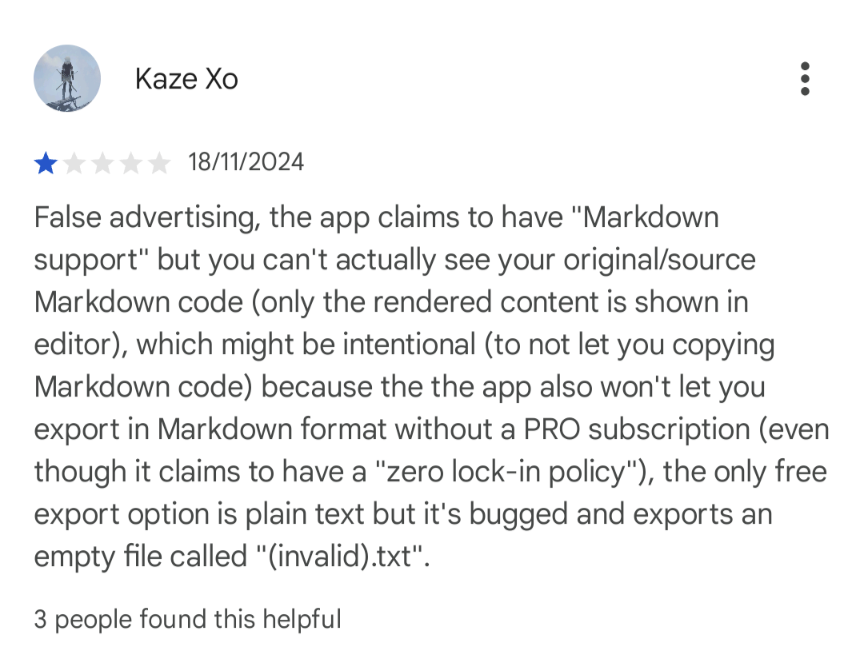
A lot of alarm bells ringing for me about that app.
Notesnook is free. It is developed under gpl https://github.com/streetwriters/notesnook
Thanks for sharing I didn’t know about this one and it’s robust as keep
i use notally for quick notes and reminders but i needed another organizer for longer text
i started trying notesnook after reading your comment and it looks like what i needed. I really like its customizability. I wish there was an option to choose fonts from file.
The only problem is that constant login reminder. Is there a way to get rid of it?
Can you selfhost a sync server? Be completely independent of them?
technically yes. they just recently made the sync server open source - https://github.com/streetwriters/notesnook-sync-server - but their documentation for it is still pending.
I’ve been following their progress for a while and can say that they appear to be following through on all their goals. and are very responsive to issues on GitHub. but don’t take my word for it, check out their roadmap to see when they release the self hosting documentation- https://notesnook.com/roadmap/
The community plugin “Google Drive Sync” is free, open source, and lets you (clunkily but effectively) bypass Obsydian Sync. One less server to manage.
Which is a great workaround but then all your private notes are on Google’s servers, accessible to anyone with enough admin rights on their end. All apps should be end-to-end encrypted going into 2025. There’s no reason security AND privacy shouldn’t be included.
There’s also syncthing, which allows syncing a folder… Hell theres even a git plugin to bypass obsidian sync, so you can get version controlled notes (which might be desirable in a work setting)
Wdym by bypass obsidian Sync? Do you have the link for said plug-in?
I mean not use the official paid sync to sync your notes… The plugin is in the official plugin store
There is also the Obsidian Selfhosted Livesync community plugin that will sync with your own sync server. As the name suggests, it syncs live, so you can even see typing from one device appear on another. It’s pretty neat
Huh, didn’t see that one when I set up obsidian… I might check it out because syncthing does have some conflicting edit issues from time to time
I just wanted to toss out another thanks for mentioning Notesnook. After a week I’m completely won over.
I thought this was about a different obsidian lol
Same. I’ve never heard of the Obsidian in the OP, so I was hoping they somehow left Microsoft and were looking for a game designer or something.


